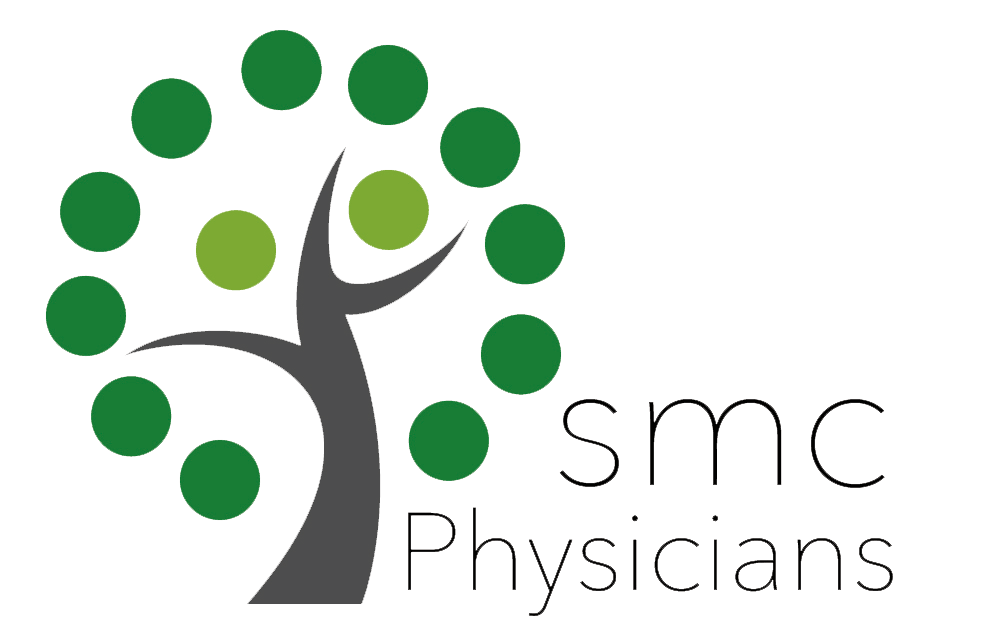Rheumatology
Rheumatoid Arthritis
Rheumatoid arthritis, often called “RA,” is a chronic autoimmune disorder that causes pain, stiffness, swelling, and loss of joint function. The immune system mistakenly attacks the synovial membrane, the tissue that lines the joints. This results in inflammation and tissue damage to ligaments, cartilage, and bone. RA may also affect the heart and lungs.
Symptoms
The symptoms of RA vary from person to person, but the most common symptoms are:
- Joint pain and stiffness, particularly in the morning or after periods of inactivity
- Joint swelling and tenderness
- Reduced range of motion in the affected joints
- Fatigue and a feeling of being generally unwell
- Fever, which may signify inflammation in the body
- Numbness or tingling in the hands and feet, which could be a sign of nerve damage
Diagnosing RA
Rheumatoid arthritis symptoms are like those of other types of arthritis, so diagnosing the disease can be challenging. X-rays and other imaging tests will reveal joint damage that can help diagnose the disease. A doctor may also order a blood test to look for specific antibodies that are present in people with RA.
Rheumatoid Arthritis Treatment
RA is a chronic condition, meaning there is no cure. However, some treatments can help manage the symptoms and slow the progression of the disease.
Medications
Medications can be used to treat RA, but these will depend on the patient’s medical history and the severity of the disease.
- NSAIDs, or nonsteroidal anti-inflammatory medications like ibuprofen, naproxen, and aspirin, can help relieve the pain associated with RA and reduce inflammation.
- Corticosteroids like prednisone and methylprednisolone reduce inflammation and suppress the immune system. They are often used for short-term relief of RA symptoms.
- Disease-modifying antirheumatic drugs (DMARDs), including methotrexate, sulfasalazine, and leflunomide, can also slow the progression of RA by suppressing the immune system.
- Biologic response modifiers (biologics), such as adalimumab, etanercept, and infliximab, target specific parts of the immune system to reduce inflammation.
- Janus kinase inhibitors (JAK inhibitors), such as tofacitinib and baricitinib, block specific enzymes in the immune system to reduce inflammation.
All medications have potential side effects and risks. It’s essential to work closely with a healthcare provider to determine the best course of treatment.
Physical therapy
Physical therapy can play an important role in treating rheumatoid arthritis by improving joint function and flexibility, helping to manage pain and stiffness, and increasing overall physical activity. Exercise can help improve joint flexibility and reduce stiffness in the affected joints.
Surgery
Although not a primary treatment option for rheumatoid arthritis, joint replacement surgeries, such as total hip replacement, total knee replacement, or total shoulder replacement, may be necessary to relieve pain and improve joint function in severe cases. The decision to undergo surgery is typically made after other treatments have failed to provide adequate relief.
Choose SMC Physicians
If you’re experiencing symptoms of rheumatoid arthritis or have been diagnosed with the condition, it’s important to seek appropriate medical care and treatment. Schedule an appointment with our Rheumatology team at SMC Physicians today to discuss your symptoms, receive an accurate diagnosis, and explore personalized treatment options that can help manage your symptoms and improve your quality of life.
Conditions We Treat
We provide ultrasound-guided arthrocentesis (joint injections) of both steroids and gel injections such as Orthovisc and Synvisc.
We offer a state-of-the art private infusion center at each location, offering the following medications and more:
Our Rheumatology Locations:
Galloway
235 East Jimmie Leeds Road Galloway, NJ 08205
Hours:
Tuesday: 8:30am-4pm
Wednesday: 8:30am-4pm
Thursday: 8:30am-4pm
Cape May Court House
108 N. Main Street, Suite # 1, Cape May Court House, NJ 08210
Hours:
Monday: 8:30am-4pm
Tuesday: 8:30am-4pm
Wednesday: 8:30am-4pm
Thursday: 8:30am-4pm
Cherry Hill
51 Haddonfield Rd, Suite 160, Cherry Hill, NJ 08002
Hours:
Monday: 8:30am-4pm
Thursday: 8:30am-4pm
Friday: 8:30am-4pm
Toms River
442 Commons Way, Unit D, Toms River, NJ 08755
Hours:
Monday: 8:30am-4pm
Tuesday: 8:30am-4pm
Wednesday: 8:30am-4pm
Thursday: 8:30am-4pm
Friday: 8:30am-4pm




